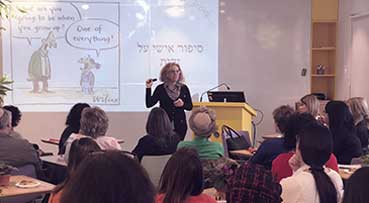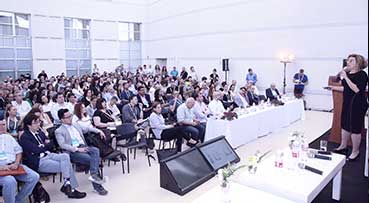For years, organizations have been paying lip service to the
Work-Life concept. We introduced programs as a way to tell employees, “we
care about you,” but if truth be told, we were primarily concerned with
your ability to work and be productive. So, if we needed to provide you with
health and mental wellbeing services, gym memberships, yoga classes, or even
healthy snacks, we would do all that—as long as it freed up your time and
energy for work. But now, amidst a world forever changed by global events and a
seismic shift in worker priorities, all that is undergoing a revolutionary
change.
When an International Standardization Organization decides
to create an ISO standard
around Wellbeing that is more evolved than how most organizations treat
employee wellbeing, I had to stop and take a second look. Especially since
systems are usually slower to respond to change compared to organizations, it
begs the question: how have we arrived at a Wellbeing Standard while
organizations are still trying to convince employees to revert to the pre-COVID
mode of work?
Wellbeing is not a new concept. Workers have lives, but for
years, those lives only began when work ended. And for all those years, we’ve
been negotiating where to draw that line. What began as a demand for labor
rights and basic working conditions has shifted towards a dialogue about the
balance between work and personal life, mirroring the rise of the middle class
and the increasing participation of women in the workforce. In recent years,
enabled by the digital age’s promise of work from anywhere and the millennial
generation’s market entry, we’re witnessing a push towards work-life
integration over mere balance. This shift emphasizes flexibility, purpose, and
the quality of work life as cornerstones of overall satisfaction and
well-being.
It took a pandemic to wake the rest of us up to the fact
that life is short, and that every day we work is a day of our lives we trade,
so it better be worth it. Suddenly, the idea that hard work is the highest form
of expression, the badge of honor we talk about when we say things like “I
worked through the weekend” or “I have an 11pm meeting,” no
longer made sense. The Great Resignation became a powerful declaration of
“I don’t want to work like I used to,” leading countless individuals
to abandon their jobs in search of more fulfilling alternatives. The Great
Reshuffle taught us that when they searched for new jobs, they were negotiating
Life, not just Work.
MIT
Sloan Management Review research showed that this sentiment was shared by
both blue and white-collar sectors with equal force, and that a toxic corporate
culture was the biggest factor pushing employees out the door during the Great
Resignation, being ten times more important than compensation. At the same
time, Microsoft’s Work
Trends 2022 Index unveiled the new Employee Worth It Equation—what people
desire from work and what they’re ready to give in return—underscoring a
pivotal shift in priorities. Now, one out of every two employees prefers to
prioritize health and wellbeing over work.
This democratization of wellbeing, extending beyond
knowledge workers to encompass all employment, transforms it from a perk into a
fundamental employment right, reshaping the essence of work contracts and how
work integrates into every aspect of life. Given the abundance of open
positions and the scarcity of talent, it’s unsurprising, for example, that
respect in the workplace has become non-negotiable. Even if you work in a store
or restaurant and your manager yells at you, all you need to do is cross the
street to another establishment and get hired with the same pay, but with one
critical demand—to be treated with respect.
So, if you’re out there contemplating your next “employee
wellbeing program,” it’s time to face the music. The Future of Work starts with
Life. We no longer want to fit life around work but the other way around – we
want to integrate our work into our lives in a way that works for the whole of
us.
That doesn’t mean people don’t want to work. They do. But
they no longer want to work for you just because they have to, or because you
tell them to, or because you measure their worth by it. They work for you
because they want to, because working for you aligns with achieving their
purpose in life.
This emerging paradigm necessitates a total redesign of our
people and work processes, fundamentally altering how we assemble teams,
manage, engage with, and reward our employees.
Welcome to the next decade of the Future of Work. It’s going
to be interesting.

![large-AX1A2125-2[1] large-AX1A2125-2[1]](https://niritcohen.com/wp-content/uploads/elementor/thumbs/large-AX1A2125-21-pnzedcs72atx5aeurqytqdiihxixlq02re9mlz805s.jpg)






